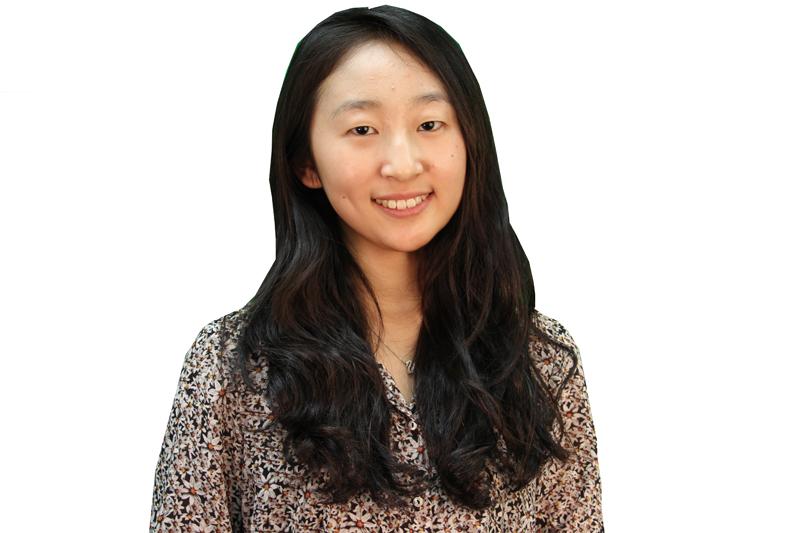Shin: Medill should expand international opportunities
October 16, 2014
In my first Medill School of Journalism, Media, Integrated Marketing class, we went around in circles answering the question: why journalism?
Just about everyone gave answers like “I want to change the world” or “I’ve always wanted to be a journalist” — scaring the bejesus out of someone like me, who had only decided to try out journalism two months before. Frankly, I was thinking if journalism didn’t fit me, I could just as easily do something else. No pressure. So given my somewhat lighthearted commitment, such conviction and work ethos made me feel bad about being there. Like I wasn’t qualified enough.
Fast forward to the present. Thursday was the mandatory meeting for sophomores to discuss journalism residency programs. JR is kind of the epitome of training to be a journalist because it allows students to stay with a media outlet for a quarter and be part of the actual team. We have four options: broadcast, magazine, marketing and news.
It’s only been a little over a year since I came to Northwestern, but already Medill is making great strides. Previously, students on JR could not work, but now they can, a change that better fits the needs of low-income students. Medill students also now have the chance to go on international reporting trips to Germany and Israel, broadening their spectrum of international opportunities outside of JR.
This is definitely a strengthening addition to the existing programs and opportunities, like the Eric Lund Global Reporting and Research Grant, which allows students to explore and share their findings on a topic of their choosing. I saw the outcome of these grants when I went to presentations covering topics such as the mental health system in China or witch camps in northern Ghana. Hearing from people who have actually gone out of their way to put themselves in a completely foreign environment and culture to investigate different stories inspired me to try and broaden my own horizons as a journalist.
What would be even better for Medill students would be to make international experience more feasible. One way could be loosening the strict study abroad policies. Medill does not accept any journalism credits from outside NU, which makes it difficult to plan long stays, like an entire year. While I appreciate Medill’s structure, I think that even by accepting two outside journalism credits, Medill could encourage students to venture abroad. Last year I took Journalism 202, where we discussed what role journalism has and how it differs around the world. But the best way to actually learn about these differences is through experience, like the experience students get on JR. By studying journalism in another country, students can meet journalists there and learn from their experiences.
In an international media age, the next logical step for Medill students is for them to be where the action is. I recently came across an Al Jazeera article from last year comparing Malala Yousafzai and Nabila Rehman that made it clear that in an information-overload era, the role of journalism is even more important. Malala, as we know, is a symbol of education for girls and of activism who recently became the youngest Nobel Prize winner. Nabila, most people may not know, is a young girl who traveled to the U.S. to testify before Congress on the consequences of U.S. drones, specifically, how she watched her grandmother die before her eyes.
What the article pointed to was that although Malala is perfect for U.S. politics because her experience justifies U.S. involvement in the country where she has been a victim of injustice, Nabila is a victim of American action. With social media, it’s easy to share stories. But often, whether we realize it or not, we share what others share and hence get a more closed view. Perhaps the media, aware of which issues are popular and which are not, may contribute to closing off public awareness on issues. I never heard about Nabila until a few days ago. To truly be a global leader in the journalism industry, Medill should lead students to question the status quo.
Over the past year I’ve assumed a role as a journalist, writing opinion columns for The Daily and designing for STITCH and Scene+Heard. Before, I wasn’t sure about the power of journalism. Often I hear that journalism is a dying field. But now, hearing back from people responding to my columns makes me realize that even I could make a difference by making people more aware of their surroundings or issues. The phrase “to change the world” is still a little overwhelming to me, but I have found confidence in myself and my role as a journalist.
Medill has been a great home for me to grow as a person and as a journalist, but it could be doing more by encouraging study abroad opportunities and further pushing students out of their comfort zones. In today’s evolving media landscape, global journalism experience is invaluable.
Heiwon Shin is a Medill sophomore. She can be contacted at heiwonshin2017@u.northwestern.edu. If you would like to respond publicly to this column, send a Letter to the Editor to opinion@dailynorthwestern.com.



